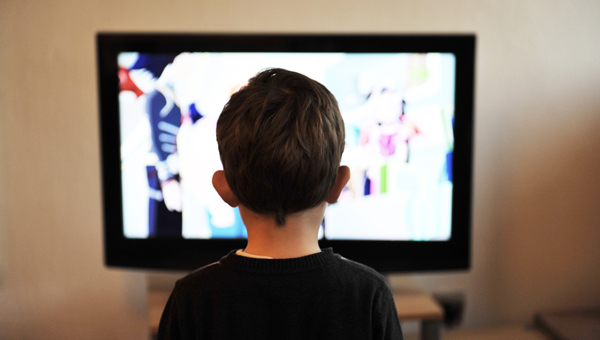How to manage screens in a digital world

This is a common question I hear in my practice...
“How long should I let my child watch screens?”
To date there is little research that is able to draw conclusions about the impact of screens on the brain.
This is not for a lack of trying. The data is still in its infancy and we just don’t know what the longitudinal (long-term) results will be.
Do You Remember When The iPhone Was Introduced?
2007!
Feels like much longer than that doesn't it?
Widespread usage of smartphones by young people didn’t occur until 2012.
For years, the American Academy of Pediatrics had suggested a limit of two hours a day of TV for children and teens. But when screen time started to include smartphones and tablets, these guidelines needed an update. So, the American Academy of Pediatrics changed its recommendations to no more than one hour of screen time for children ages 2 to 5.
For older children and teens, they caution against too much screen time, but there’s no specific time limit.
The American Heart Association announced similar guidelines. In December 2018 preliminary results of a study conducted by National Institutes of Health (NIH) came out.
NIH followed children and adolescents for 10 years and then performed an MRI of their brains while they were using screens. In the first wave of 4,500 participants, researchers noted significant changes in children’s brain development if they have more than seven hours of screen time a day.
Screen Time Leads To Lower Scores?
The data also suggested that kids spending more than two hours a day on any type of screen received lower scores on language and thinking tests.
“Scientists believe screen time stimulates the release of the brain chemical dopamine, which has a pivotal role in cravings and desire.”
There have been several articles in popular media stating that tech moguls impose far stricter rules on their children’s use of screens than a typical parent does. This is because they know how addictive these screens are designed to be.
Screens tap into the pleasure centers of the brain, and they do so in a way that’s hard to replicate in the non-digital world.
When a child gets accustomed to the kind of rapid-fire reward system of gaming, YouTubes, and social media they may be less likely to: read a book, which requires considerable patience and offers no bells and whistles; go outside and explore nature; do something creative; and seek out social interaction.
What’s Scary About Screens Is... It’s Possible They Are Re-wiring The Brain!
As children develop from birth to adulthood an important process called synaptic pruning is happening. Infants are born with huge numbers of synapses (points of contact) between brain cells.
This is inefficient, so the brain prunes the connections it doesn’t need and reinforces (through myelination) the ones it does. This process is all driven by experience – by exposure to the environment.
Repeated experiences strengthen connections. Connections that aren’t used are pruned away. This means that how children spend their time can have important, lifelong ramifications.
Repeated behaviors can become biologically compelled habits.
Parents need to be a “media mentor”
Without adult guidance, most teenagers would spend almost all their waking hours behind a screen. Whether they're texting on their smartphones, or they're watching videos on their laptops, their electronics use can easily get out of control.
A 2010 study by the Kaiser Family Foundation found that 8- to 18-year-old children devote an average of 7 hours and 38 minutes to entertainment media each day.
That totals more than 53 hours per week or 2770 hours each year!
Screens don’t have to be the enemy!
They were designed to be useful and efficient modes of information (maps and directions, quickly finding out the weather, etc.). As said by Jean Twenge, screens should be a tool to use, not a tool that uses you.
Let's look at strategies you can use to limit your child’s screen time.
- First and foremost, the same parenting rules apply to screen time as to anything else — set a good example, establish limits, and talk with your child about it. Adults are sometimes the worst examples! I see more adults driving and texting than teens. Don’t be the adult on their phone while at your child’s sporting event or extracurricular activities.
- Most kids, especially younger ones, aren’t mature enough to handle free reign with their electronics. Establish Rules:
- Have a set time when screens need to be turned off (at the dinner table, when getting ready for school, etc.).
- No screens allowed in the bedroom (including TV’s). Do we really think that a device can charge in their room without them sneaking a peak?!
- Limit their use.
- Treat screen time as a privilege not a right. Maybe it's by completing chores or homework.
- Consider not allowing social media until the age of 13.
- Use screening tools on TV, computers and tablets to block access to inappropriate material. You can also set timers for certain apps (You Tube).
- Quality matters!
- Provide alternatives to screens (card games, board games, etc.). Encourage outdoor activities or ones that require imagination. Let them spend time with friends.
- Safety is always important. It’s always a good idea to preview what you child is seeing or playing on the internet or screen. Talk to your child about internet safety.
If you have questions or would like to discuss further please contact Dr. Kristin Rose at DrRose@RoseTherapyCenter.com
The Henry J. Kaiser Family Foundation. Generation M2: Media in the Lives of 8 to 18 Year Olds.
